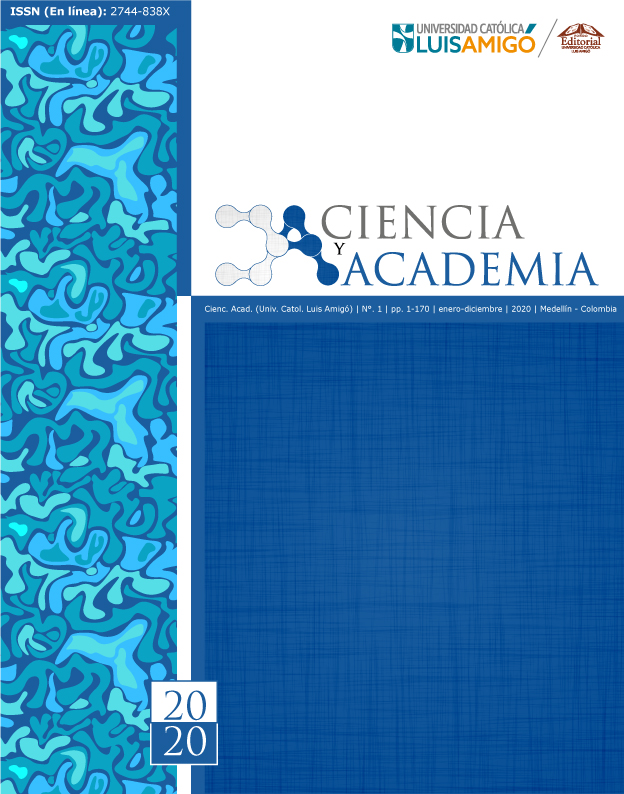Stages of research training in research incubators for language teachers
DOI:
https://doi.org/10.21501/2744838X.3736Keywords:
Research incubators, Formative research, Research training, Teacher education, Language teachers.Abstract
Considering the importance of research training in teacher education programs in Colombia, it is worth highlighting the contribution of research incubators to the training of new teacher researchers. To that aim, the present article gathers the experiences of some students from the research incubator in Language Teacher Education at Universidad Católica Luis Amigó. The article includes part of the results from the study Genesis of the Teacher Researcher in Research Incubators, led by members of the same research team, as well as the perspective of graduates from the research incubator who are already practicing teachers. This article offers a critical and reflective look at the personal and professional experience of some of the students who have taken part in the research incubator under the guidance of their coordinator. The article focuses on making known the perspectives of these students with regard to the different stages of their research training within the group. Authors conclude that participation in research incubators has a profound impact on the personal and professional identities of language teachers.Downloads
References
Abad, J. V., & Pineda, L. K. (2018). Research Training in Language Teacher Education: Reflections from a Mentee and her Mentor. Íkala, 23(1), 85-98. https://revistas.udea.edu.co/index.php/ikala/article/view/325860/20787402.
Aranguren, G. (2007). La investigación-acción sistematizadora como estrategia de intervención y formación del docente en su rol de investigador. Revista de Pedagogía, 28(82), 173-195. http://ve.scielo.org/pdf/p/v28n82/art02.pdf.
Berrouet-Marimon, F. R. (2007). Experiencia de iniciación en cultura investigativa con estudiantes de pregrado desde un semillero de investigación [Tesis de maestría, Universidad de Antioquia]. http://ayura.udea.edu.co:8080/jspui/bitstream/123456789/1315/1/G0023.pdf.
Borg, S. (2006). Conditions for Teacher Research. English Teaching
Forum, 44(4), 22-27. https://eric.ed.gov/?id=EJ1107899.
Borg, S. (2013). Teacher Research in Language Teaching: A Critical Analysis. Cambridge University Press.
Burns, A. (2010). Doing Action Research in English Language Teaching: A Guide for Practitioners. Routledge.
Castro-Garcés, A. Y., & Martínez-Granada, L. (2016). The Role of Collaborative Action Research in Teachers’ Professional Development. PROFILE Issues in Teachers’ Professional Development, 18(1), 39-54. http://dx.doi.org/10.15446/profile.v18n1.49148.
Cochran-Smith, M., & Lytle, S. L. (Eds.). (1993). Inside/ outside: Teacher Research and Knowledge. Teacher College Press.
Cochran-Smith, M., & Lytle, S. L. (1999). The Teacher Research Movement: A Decade Later. Educational Researcher, 28(7), 15-25. https://doi.org/10.3102%2F0013189X028007015.
De Faría, L. P., & De Alizo, L. P. (2006). Perfil de competencias del docente en la función de investigador y su relación con la producción intelectual. Opción: Revista de Ciencias Humanas y Sociales, 22(50), 159-178. https://www.redalyc.org/pdf/310/31005008.pdf.
Hernández, C. A. (2003). Investigación e investigación formativa.
Nómadas, (18) 183-193. http://www.redalyc.org/pdf/1051/105117890018.pdf.
Marcelo-García, C. (2009). La identidad docente: constantes y desafíos. Revista Interamericana, 3(1), 15-42. https://revistas.usantotomas.edu.co/index.php/riiep/article/view/1301/1499.
Moliner, M. (1998). Diccionario de uso del español. Gredos.
Restrepo-Gómez, B. (2003). Investigación formativa e investigación productiva de conocimiento en la universidad. Nómadas, 18, 195-202. http://nomadas.ucentral.edu.co/nomadas/pdf/nomadas_18/18_18R_Investigacionformativa.pdf.
Restrepo-Gómez, B. (2007). Conceptos y aplicaciones de la investigación formativa, y criterios para evaluar la investigación científica en sentido estricto. http://www.mineducacion.gov.co/CNA/1741/articles-186502_doc_academico5.pdf.
Restrepo-Gómez, B. (2008). Formación Investigativa e investigación formativa: Acepciones y operacionalización de esta última y contraste con la investigación científica en sentido estricto. http://web.unap.edu.pe/web/sites/default/files/Formacion-investigativa-e-Investigacion-formativa.pdf
Vaillant, D. (2007). La identidad docente. Ponencia presentada en I Congreso Internacional “Nuevas Tendencias en la Formación Permanente del Profesorado”, Barcelona, 5,6 y 7 septiembre 2007. http://www.ub.edu/obipd/docs/la_identidad_docente_vaillant_d.pdf.
Vicerrectoría de Investigaciones. (2012). Estrategia 2022. Fundación Universitaria Luis Amigó. https://www.funlam.edu.co/uploads/centroinvestigaciones/99_ESTRATEGIA_DE_INVESTIGACION_2012.pdf
Villalba-Cuéllar, J. C., y González-Serrano, A. (2017). La Importancia de los semilleros de investigación. Prolegómenos, 20(39), 9-10. http://www.scielo.org.co/pdf/prole/v20n39/v20n39a01.pdf.
Published
How to Cite
Issue
Section
License
Copyright (c) 2020 Ciencia y Academia

This work is licensed under a Creative Commons Attribution-NoDerivatives 4.0 International License.
La revista y los textos individuales que en esta se divulgan están protegidos por las leyes de copyright y por los términos y condiciones de la Licencia Creative Commons Atribución-No Comercial- 4.0 Internacional. Permisos que vayan más allá de lo cubierto por esta licencia pueden encontrarse en http://www.funlam.edu.co/modules/fondoeditorial/






